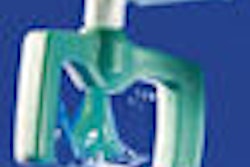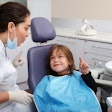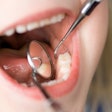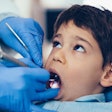Does using computer-controlled local anesthetic delivery (C-CLAD) technology -- such as the STA system from Milestone Scientific -- for an intraligamentary (ILI) injection on primary teeth in pediatric patients cause damage to the underlying, developing adult permanent tooth?
Not according to a new study in the International Journal of Paediatric Dentistry (July 2010, Vol. 20:4, pp. 270-275).
Intraligamental anesthesia delivered by a high-pressure syringe is often associated with damage to the periodontal tissue. Developmental disturbances to the underlying permanent tooth buds are another potential complication. So researchers from Tel Aviv University set out to evaluate the prevalence of developmental disturbances in permanent teeth in which buds were exposed to an ILI delivered using a C-CLAD system.
The study population consisted of 78 children, ages 4-12 years, who received a C-CLAD-ILI to 166 primary molars. A structured form was designed to include information regarding age at treatment, gender, type of treated tooth, tooth location, type of dental treatment, and type of developmental disturbance(s) present in the associated permanent tooth. Teeth that received regular anesthesia or were not anesthetized by local anesthesia served as controls.
Five children had developmental defects, the researchers noted. In C-CLAD-ILI exposed teeth, one child had two hypomaturation defects. The corresponding primary teeth were extracted. No defects were found on the control side. In two children, hypoplastic defects were found only in the control teeth (one in each child). One suffered from a dentoalveolar abscess in the corresponding primary tooth. Diffuse hypomaturation defects were found in two children on both the C-CLAD-ILI exposed and control sides.
"Although ILI administered by C-CLAD and high-pressure syringe are injected into the same place, C-CLAD-ILI does not damage the underlying permanent dental bud in children 4.1 years or older," the researchers concluded. "Notwithstanding, younger children who receive C-CLAD-ILI to anesthetize their primary molars should be routinely followed up to rule out developmental defects in their permanent premolars."
Copyright © 2010 DrBicuspid.com



















